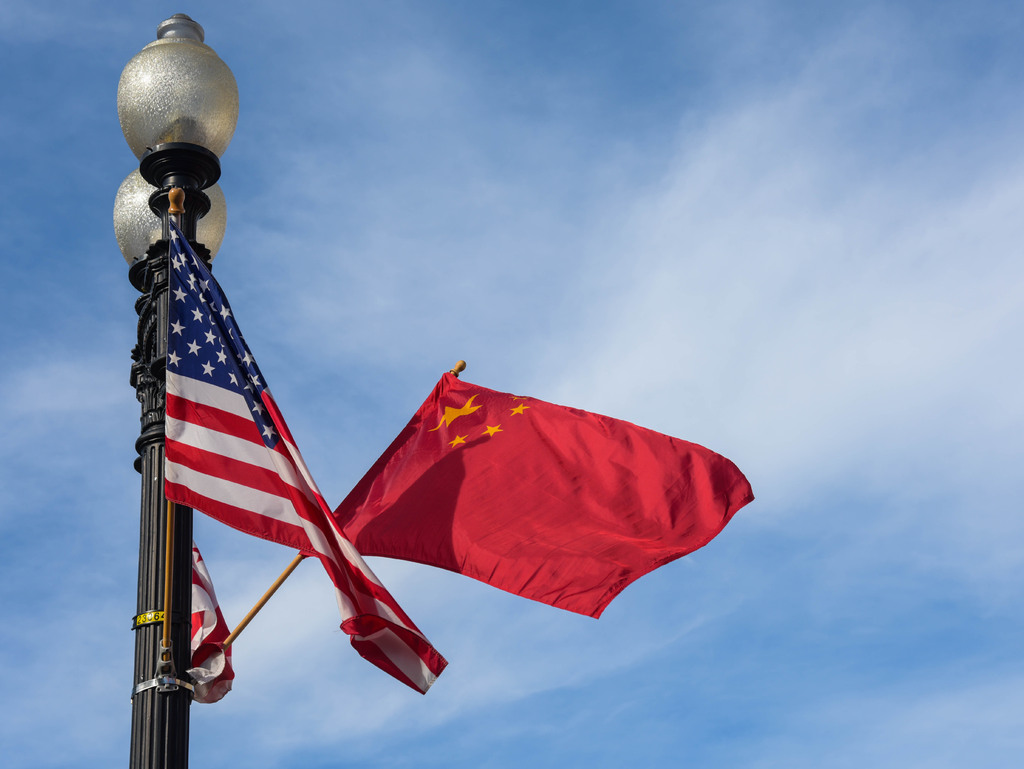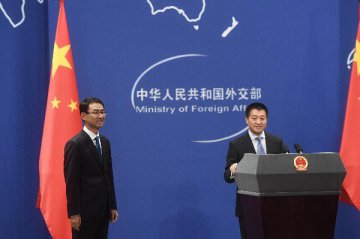
National flags of China and the United States.(Xinhua)
BEIJING, June 2 (Xinhua) -- Like the waves of the Pacific, the history of China-U.S. trade and economic relations has witnessed ups and downs over the past four decades. If history is any guide, it is only through cooperation for win-win solution can the world's two largest economies sail toward a better future.
By adopting a rational and cooperative attitude, China and the U.S. time after time have managed to resolve conflicts, bridge differences, and render the bilateral commercial relationship more mature through dialogue and consultation.
The ongoing China-U.S. economic and trade consultations are no exception. China outlined its stance Sunday in a white paper on the consultations, saying cooperation is the only correct choice for both sides. Cooperation serves the interests of the two countries, and conflict can only hurt both.
The white paper is well-timed. After China published a white paper on facts and its position on trade friction with U.S. in September 2018, multiple rounds of economic and trade consultations were conducted with the two sides agreeing on most parts of the deal. But the consultations have not been free of setbacks, each of them being the result of a U.S. breach of consensus and commitments, and backtracking.
China's position is clear, consistent and firm. Disputes and conflicts on the trade and economic front need to be solved through dialogue and consultation. Striking a mutually beneficial and win-win agreement serves the interests of China and the U.S., and meets the expectations of the world.
U.S. tariff measures will undermine market confidence and economic stability in the two countries. In fact, the U.S. economy has been seriously harmed by its own tariff measures in terms of increased production costs, domestic price hikes, economic growth and people's wellbeing.
Globally, the U.S. go-it-alone protectionist measures have damaged the multilateral trading system, seriously disrupted global industrial chains and supply chains, and posed a serious challenge to global economic recovery and a major threat to the trend of economic globalization.
Cooperation, however, does have its prerequisite. China's right to development cannot be sacrificed, and neither can its economic sovereignty be undermined. Negotiations will get nowhere if one side tries to coerce the other or if only one party will benefit from the outcomes. What China aims for are consultations based on equal footing, and mutually beneficial and win-win results.
So far, Washington insists on putting "America first" in every sphere of international trade, which is evident from the fact that it insists on having a trade agreement with China in the U.S. favor.
This will undermine the base for bilateral trade talks, and is apparently why the 11 rounds of consultations have not produced an agreement.
Cooperation should be based on principles, and there are bottom lines in consultations. China will not compromise on major issues of principle, but will act rationally in the interests of the Chinese people, the American people, and all other peoples around the world.
"Honesty is the best policy." Some politicians in Washington really need to be reminded of Benjamin Franklin's famous words to honor commitments and adopt cooperative attitude to look forward, not backward.




















Latest comments